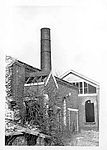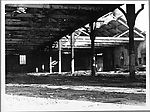 N. Hingley & Sons 1989
N. Hingley & Sons 1989 N. Hingley & Sons 1989
N. Hingley & Sons 1989 N. Hingley & Sons 1989
N. Hingley & Sons 1989 Lloyds testing house
Lloyds testing house Lloyds testing house
Lloyds testing house Lloyds testing house
Lloyds testing house Lloyds testing house
Lloyds testing house Lloyds testing house
Lloyds testing house Lloyds testing house
Lloyds testing house Lloyds testing house
Lloyds testing house Lloyds testing house
Lloyds testing house Derelict domestic chainshop
Derelict domestic chainshop Derelict domestic chainshop
Derelict domestic chainshop Mushroom Green before restoration
Mushroom Green before restoration Mushroom Green before restoration
Mushroom Green before restoration

The wrought iron chain industry began its decline during the 1920s, and was finally layed to rest in the 1970s. The reasons for the decline of this, and other British industry, have been discussed at length by academics ever since.
There is a case to suggest that the British public school system was a major factor in industrial decline. When studying the development of the great Victorian industrial businesses in Britain, a pattern can be seen to emerge. The first generation tended to be the innovators, usually with humble backgrounds. The next generation developed the business and, having money, sent their children to public school. This third generation tended to be inculcated with an anti-industrial ethos, the priorities of the British public school system being duty, service and excellence on the sportsfield. “Trade” was not deemed to be a suitable occupation for the ruling classes, and there existed what could be called “Jerusalem syndrome,” wherein the “dark satanic mills” are no longer.
The British public school system placed little emphasis on a technical and scientific education, so while the Germans and U.S. were forging ahead with providing a technical education for their youth, the British were being trained to be civil servants, colonial governors and the like, rather than businessmen.
The technical education being given abroad meant that Britain did not keep pace with developments in casting techniques, which would ultimately result in the demise of the wrought iron industry. In order to mechanise the chainmaking industry and move away from the labour intensive method of producing chain, it was necessary to be able to produce iron castings that were as reliable as wrought iron. Once this was achieved, chain manufacture could be largely automated, and although a few of the established chainmaking concerns did invest in electrically welded cast-iron chain, the lead had already been lost to foreign concerns.
Also, the wealth generated by the successful industrial empires of the Victorian and Edwardian eras was not being re-invested in Britain. Although home-grown British industry was in decline from the 1920s onwards, extensive investment abroad continued to contribute to Britain’s success as a major financial hub of the world, as it still does today.
Business ethics also played a part in the decline of British industry. Generally speaking, Britain and British businessmen were anti-cartel and anti-tariff. So while U.S. and German businesses were collaborating on price-fixing, most British businessmen regarded such behaviour as unacceptable. And while U.S. and German governments were placing tariffs in the path of imports, the U.K. continued with a free-trade policy. It can only be speculated upon whether it was a notion of “fair-play” inculcated by the public school system that prevented the British from adopting the policies of its foreign competitors.
It has also been suggested that the British were not the best salespeople abroad, and that the intrinsically zenophobic nature of the British prevented the level of foreign expansion that was the norm in other European and U.S. businesses at the start of the 20th century.
A factor in the demise of the domestic chainshop from the 1930s onwards was the increased use of tractors, which meant the end of demand for chain harnesses for horses. That the domestic industry did not finally come to an end until the 1970s is a tribute to the quality of the product, as there must have been those who were prepared to pay a premium for a hand-made product.
As for larger factory-made chain, production of electrically-welded steel chain continues in the Black Country, although the days of market domination are over.
Rollover the captions in the box to see the available images in thumbnail format, click the caption to see the full-size image
| Reference: | 668 |
| Keywords: | |
| Archive Ref: | |
| Updated: | Thu 22 Mar 2007 - 1 |
| Interpretation written by | Louis Howe |
| Author's organisation | Curatorial |
| Organisation's website |